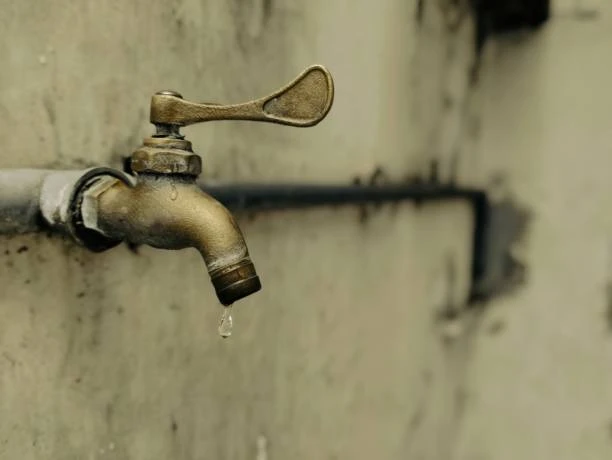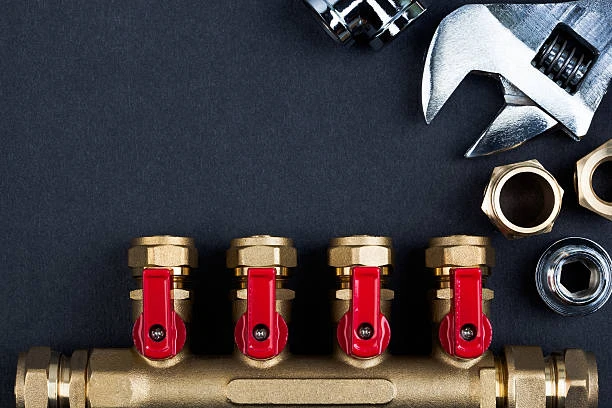Imagine turning on your outdoor faucets for a routine watering session or to fill up a garden hose, only to have a snake—or worse, a cobra—fly out of the faucet. It sounds like something out of a horror movie or an wildlife documentary, but it’s a real occurrence that’s happening in some parts of the world. While it might be hard to believe, the presence of snakes in outdoor faucets is not as rare as one might think. In fact, a recent story went viral after a cobra emerged from an outdoor faucet in an unusual and alarming incident, reminding homeowners everywhere about the potential dangers lurking in their drains and pipes.
This article will explore how a snake, especially a venomous one like a cobra, can end up in your outdoor faucet, how to prevent such occurrences, and what to do if you find yourself in this terrifying situation. If you’re a homeowner, gardener, or anyone who relies on outdoor faucets, it’s important to understand the potential risks and safety measures to protect yourself and your home.
How Could a Cobra End Up in an Outdoor Faucet?
Outdoor faucets, especially those in warm or tropical climates, can provide an unexpected entry point for various creatures, including snakes. While it’s not common for a cobra to slither into a faucet, it is possible. Here’s how this can happen:
1. Snake Habitat Near Water Sources
Snakes, including cobras, often seek out water sources to drink or to cool off. Outdoor faucets or garden hoses connected to a water supply can be particularly inviting for a snake looking for a drink. If the faucet is left unprotected, a snake may crawl into the pipes or plumbing, searching for water or shelter.
2. Drainage Systems and Plumbing
In some cases, snakes can enter a home’s plumbing system via drainage pipes. While this may seem far-fetched, snakes have been known to enter drains, especially if the plumbing is not sealed tightly or has small openings. Once inside, they could potentially make their way to an outdoor faucet, where they might emerge when the faucet is turned on.
3. Unsealed Gaps and Cracks
Outdoor faucets that are not properly sealed or insulated can create gaps around the base or piping, providing an entry point for snakes to crawl into. These gaps may also allow small creatures like rodents, insects, and other pests, which in turn attract predators like snakes.
4. Climate and Local Wildlife
The likelihood of encountering a snake in your outdoor faucet is higher in regions where snakes are commonly found, such as tropical areas or regions with mild, year-round temperatures. In such climates, cobras, vipers, and other venomous snakes are more likely to inhabit areas near water sources, including yards, drains, and gardens.
What to Do if a Snake Emerges From Your Outdoor Faucet
While the idea of a snake coming out of your outdoor faucet might seem like an impossible scenario, it’s essential to know how to handle the situation should it arise. Here’s a step-by-step guide to managing a snake encounter safely:
1. Stay Calm
The first step is to remain calm. Panic can make the situation more dangerous. Remember, snakes are generally more afraid of humans than we are of them. If you encounter a snake in or around your faucet, avoid trying to grab it yourself.
2. Turn Off the Faucet
If you spot a snake emerging from the faucet, immediately turn off the water. A snake might be startled by the water flow and may try to escape or retreat back into the pipes. By shutting off the faucet, you prevent water from making the situation worse, and it may reduce the snake’s anxiety.
3. Keep a Safe Distance
Stand at a safe distance and avoid any sudden movements that might provoke the snake. Most snakes, including venomous ones like cobras, prefer to avoid confrontation unless they feel threatened.
4. Call a Professional
If you find a snake in your faucet, it’s crucial to call a professional pest control service or a wildlife removal expert. These specialists have the tools and experience needed to safely handle and remove the snake from your property. Don’t try to deal with the situation on your own, especially if the snake is venomous.
5. Ensure the Snake Is Gone
Once the snake has been safely removed, check to ensure there are no other snakes in the area. Snakes tend to live in colonies or near water sources, so it’s important to inspect the surrounding area for any signs of other wildlife that could pose a risk.

Preventing Snakes From Entering Your Outdoor Faucets
While it may sound like an unusual problem, preventing snakes from entering your outdoor faucets is largely about maintaining a secure and well-maintained outdoor space. Here are a few strategies to keep snakes and other creatures away:
1. Seal Gaps Around Faucets
One of the simplest ways to prevent snakes from entering your outdoor faucets is by ensuring there are no gaps or cracks in the surrounding pipes or fittings. Use caulk, silicone sealant, or other weatherproof materials to seal any openings around your faucet that could serve as an entry point.
How to do it:
- Inspect the area around your faucet for cracks or gaps.
- Apply caulk or expanding foam to fill in these spaces.
- Check periodically for wear and tear on seals, especially after storms.
2. Install Snake-Proof Covers
You can install snake-proof covers around your outdoor faucets to further deter snakes from crawling inside. These covers are typically made of durable wire mesh or other materials that prevent snakes from slithering through small spaces.
How to do it:
- Purchase a snake-proof faucet cover from a hardware store.
- Install the cover over the faucet, ensuring it’s tightly secured.
- Use heavy-duty wire or mesh if you need to create a custom cover for the area around your faucet.
3. Trim Vegetation and Remove Debris
Snakes are drawn to areas with plenty of shelter, such as tall grass, overgrown bushes, and piles of leaves or debris. Keeping your garden and yard clean will reduce the likelihood of snakes taking shelter near your faucet.
How to do it:
- Regularly trim back bushes, shrubs, and trees near outdoor water sources.
- Keep the area around the faucet free from piles of leaves or debris that could provide a hiding spot for snakes.
- Maintain your lawn by mowing it regularly.
4. Use Snake Repellents
There are several natural snake repellents available that can deter snakes from coming too close to your outdoor faucet. These repellents usually contain ingredients that snakes find unpleasant, such as cinnamon, clove, or cedarwood oil.
How to do it:
- Apply snake repellents around the perimeter of your yard and near your faucets.
- Reapply regularly, especially after heavy rain.
5. Install Motion-Sensor Lighting
Snakes are more active at night and tend to avoid areas with bright lights. Installing motion-sensor lighting near your outdoor faucets can help deter snakes from approaching in the dark.
How to do it:
- Install motion-sensor lights near your faucet, focusing on areas where snakes are likely to crawl.
- Choose weatherproof lights designed for outdoor use.
- Test the lights regularly to ensure they are functioning correctly.
Conclusion outdoor faucets
While the idea of a cobra—or any snake—coming out of an outdoor faucet might seem far-fetched, it’s a reminder that our homes and yards can sometimes be more vulnerable to nature than we realize. From keeping outdoor faucets properly sealed to trimming back vegetation and using snake repellents, there are several steps homeowners can take to minimize the risk of encountering snakes in their plumbing.
Should you ever find yourself in a situation where a snake emerges from an outdoor faucet, it’s important to stay calm, avoid interacting with the snake, and contact a professional to handle the situation. With the right precautions in place, you can enjoy your outdoor spaces without worrying about unexpected wildlife intrusions.
Frequently Asked Questions (FAQ)
How can I tell if a snake is venomous?
Venomous snakes often have distinct markings or features, such as triangular heads or bright colors. However, it’s best to avoid handling any snake, as it can be difficult to tell if it’s venomous or not. Always call a professional for help.
What should I do if I find a snake in my yard?
If you spot a snake in your yard, do not approach it. Maintain a safe distance, and call a pest control or wildlife removal expert to handle the situation safely.
Can snakes live in outdoor faucets?
Yes, snakes may enter outdoor faucets or nearby plumbing systems, especially if the faucet is poorly sealed or located near a water source. Proper sealing and maintenance can help prevent this.
How do I keep snakes away from my outdoor faucets?
To keep snakes away from your outdoor faucets, seal gaps, trim back vegetation, use snake-proof covers, and apply natural snake repellents around your yard.
Are there any natural repellents for snakes?
Yes, natural snake repellents such as cinnamon, clove, and cedarwood oil can be effective in deterring snakes from your property. Reapply them regularly for the best results.


















